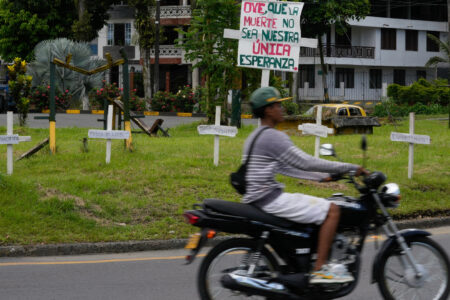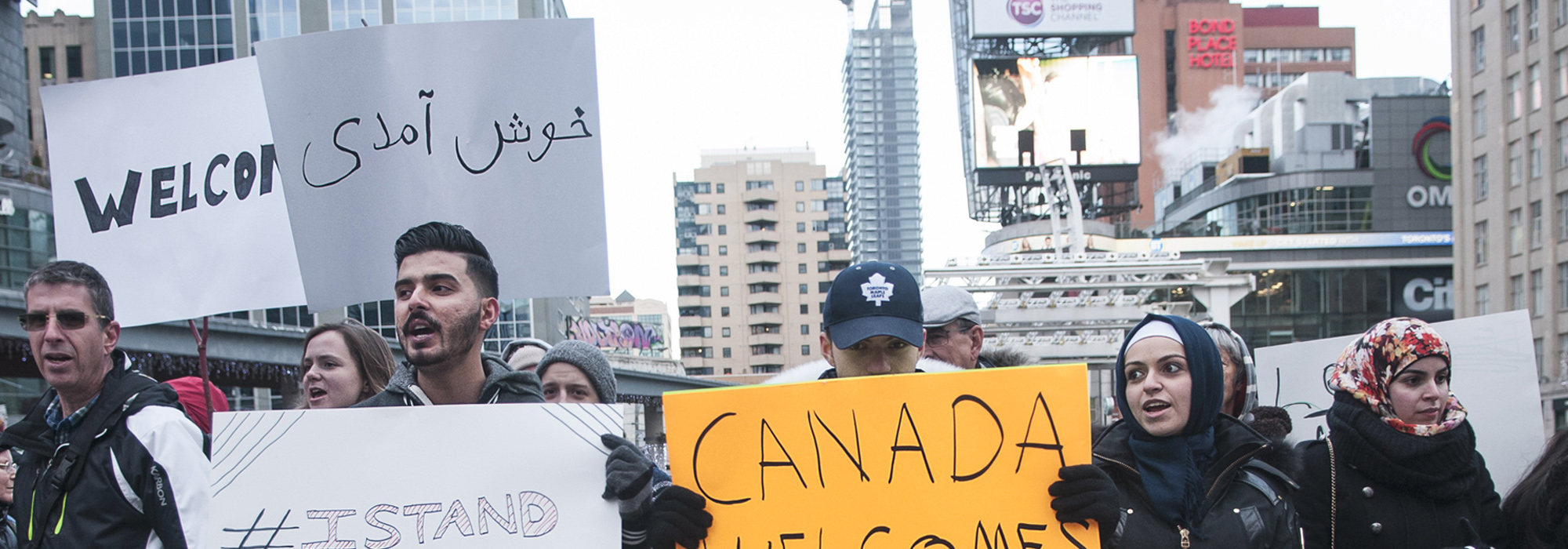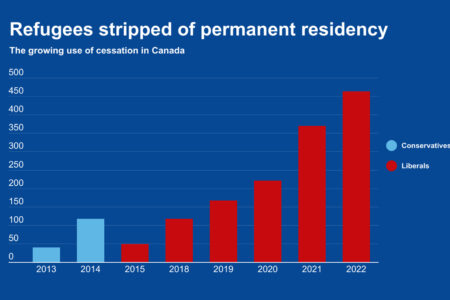
Ontario’s Peel region has seen a remarkable response to the Syrian refugee crisis. We have heard of intergenerational private sponsors of refugees (a father passing on the tradition to his son) and church groups sponsoring and welcoming families with open arms. Community partners have told us about classrooms welcoming Syrian children, and local employers hiring refugees and supporting integration of their families. However, we also know that this work is not without its challenges.
Peel is often viewed as a community of secondary migrants, immigrants who re-emigrate to a new location. The Peel region (consisting of Mississauga, Brampton and Caledon) is highly attractive to newcomers (second only to Toronto), because of its faith-based institutions, ethnic enclaves and amenities, as well as its large network of newcomers and immigrants. The region welcomes over 34,000 new residents every year. Of the 76 new people who arrive in Peel every day, 53 are newcomers (according to the 2011 National Household Survey). Mississauga is the third most attractive Canadian city (after Montreal and Toronto) for recent immigrants born in Syria.
The Peel Newcomer Strategy Group is one of the key players examining the integration needs of newcomers and refugees. As is the case with many refugees, Syrian refugees need affordable and long-term housing, social inclusion programming, access to gainful employment, support for integrating their children into the school system, Arabic settlement services for adults, and a variety of mental health supports.
Being part of a welcoming community means respecting the needs of those arriving. Along with basic human concern and empathy, there is a need for social and economic inclusion strategies to assist in overall integration. The responsibility for that integration resides not only with the individuals arriving, but also with the community and with stakeholders welcoming them. All sectors need to recognize that the success of refugees in our community has to be a joint effort. Activities that reduce social isolation and the removal of economic barriers will increase the likelihood of successful integration.
Recognizing the need to have evidence-based information about services and programs that refugees need, and to identify the support gaps, the strategy group conducted a community survey, “Capacity to Serve Syrian Refugees.” The response rate was high — 40 local agencies responded.
Here are some of the main recommendations we identified.
Investment in social inclusion activities. Social isolation is a very common among newcomers as they attempt to navigate a new system and essentially rebuild a new community for themselves. In the case of the Syrian refugees, we find that many government-assisted refugees speak minimal if any English, and some have low literacy levels in their native language. This language barrier, compounded with social isolation, can result in increased stress, depression and anxiety.
Various activities could address this isolation; some examples are programs that enable women and mothers to get together, group outings to historic sites in the Greater Toronto Area, and workshops on the norms of Canadian society. Activities for children and youth are also vital, and these activities need to take into account the fact that that many of the young people have not attended or even been exposed to a formal school structure.
Mental health support for settlement organizations. These organizations provide initial, transitional support to refugees, but do not have the capacity to provide or identify the mental health needs of or provide mental health assistance to refugee populations. Efforts are needed to bridge the gap between mental health supports provided by settlement agencies and the supports needed.
Supports such as mental health assessment, early identification of trauma and post-traumatic stress disorder, and treatment for depression could be built into the services provided by the settlement agencies, or by partnering with mainstream community mental health services (for example, the Canadian Mental Health Association, community health centres, and primary care physicians).
Engaging faith-based groups. Mosques, churches and temples are often the first and sometimes the only point of contact for refugees. These groups can offer a faith community to join, but they may have limited connection to social services and knowledge of settlement supports available for Syrian refugees.
It is important to continue to facilitate the connections between these groups and service providers to keep faith-based groups informed. Connecting faith-based groups with one another and with the mainstream social services will support faith-based groups in the sponsorship process and help them support the refugees that use their services.
Data collection that is local. Census data is important, and the return of the mandatory long-form questionnaire will re-establish a reliable source of information. However, access to local data on the region’s demographics, capacity and needs is imperative to enable communities to plan more effectively. This can be done with the collaboration of institutional funders, as well with the assistance of local government, school boards and social service agencies. With such local sources of funding, the data can to be used to zero in on needed services as well as improve outreach and program planning and implementation.
Utilizing and enhancing existing networks and agencies. Many communities, agencies and networks already serve refugees and have done so for several years. Utilizing the existing services and enhancing their capacity would be the most effective strategy, given the high volume of refugees arriving in Canada in a relatively short period. This strategy could involve increasing provincial and federal financial support to ensure a multi-year funding model, convening a round table of key players in the community for faster service integration, and identifying key gaps in available services through a community-wide survey.
Onsite workplace language support. Given that many Syrian refugees will need to work long before they are proficient in the language they need (despite advice to tackle language concerns first), it is important to provide workplace-based language supports to ensure there is continuous improvement, so that this group of workers is not progressively marginalized.
* * *
These recommendations identify some of the gaps in services that need to be filled to improve the integration of refugees into our community. It is in this critical period of settlement, within five years of arrival, that most of the supports are required. Refugees need stable employment and secure housing, they need to build social networks, and they need to address language barriers. All this must happen while they are dealing with the distress of arriving in a new country with a different culture.
A coordinated effort will be critical if Syrian refugee resettlement is to be effective, and the appropriate stakeholders must be convened. This effort must involve more than the settlement sector, and include those offering mainstream services as well as informal supports. It must involve funders such as United Way, foundations, and all three tiers of government.
In short, this is a collective community effort. We must help new residents to thrive and to become valued and contributing citizens. If it is not done effectively, the result could be disenfranchised young people, isolated families, and cycles of poverty.
Photo: arindambanerjee / Shutterstock.com
This article is part of the Refugee Integration special feature.
Do you have something to say about the article you just read? Be part of the Policy Options discussion, and send in your own submission. Here is a link on how to do it. | Souhaitez-vous réagir à cet article ? Joignez-vous aux débats d’Options politiques et soumettez-nous votre texte en suivant ces directives.







